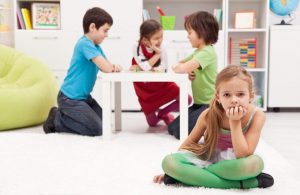
Depression is like building an invisible wall between you and your child; a wall that only you can conquer.
One out of seven mothers will suffer pregnancy-related depression regardless of the number of children; this is data provided by the American Psychiatric Association. Mothers are most vulnerable to experiencing postpartum depression (PPD) after delivery; wherein they suffer from severe physical, emotional, biological, social, and financial changes all at the same time. Sometimes, the “baby blues” have become so extensive that it interferes with how mothers bond with their babies.
Signs And Symptoms Of PPD
As gradual as it is deceptive, depression can manifest in different ways for different people, ranging from mild, moderate, to severe. Here are some of the most common signs and symptoms of the mood disorder:
- Little or no interest in food with noticeable changes in eating habits
- Alterations in patterns of sleep which could either be too much or too little
- Inadequate energy
- Uncontrollable and unexplainable feeling of worthlessness, hopelessness, and sadness
- Constant crying for no reason at all
- Displeasure in activities that used to bring enjoyment
In pregnant women, depression is either caused by miscarriage, preterm delivery, or low birth weight baby. The moment depression sets in during pregnancy period and is not treatedimmediately, the condition will persist even after birth which is why it is termed as postpartum depression.
How PPD Influence Mother-Child Bond

Postpartum depression can severely affect your relationship with your baby and might greatly upset the baby’s health and overall well-being. Mothers who fail to recognize that they are being overwhelmed by depression may have difficulties dealing and caring for their babies. Most of the time, mothers feel withdrawn and have an unexplainable unwillingness to respond to their children’s needs.
As also mentioned in Parents.com, depression disconnects mothers from their babies, thereby severely affecting their attachment which is vital in the growth and development of children. The mother and child bond is profoundly emotional, forming on the first few months of the baby’s life. It’s a mother’s primary instinct to immediately respond to her wailing infant and provide whatever is necessary to make the baby feel secure and loved. However, in postpartum depression, this connection is severed.
The Aftereffects Of PPD

Children who grew up with a certain level of disconnection with their mothers due to postpartum depression may develop some problems as they enter a new chapter in their lives. Some of the disconcerting aftereffects of living with a mother that has PPD are:
- Impaired social skills
- Unable to make decisions on their own
- Behavioral issues
- Trouble acquiring new skills
- Destructive or aggressive behavior
- High risk for ADHD
- Poor academic performance
- Increased anxiety
Aside from all these repercussions, probably the most worrisome effect is that the child may also develop depression at one point in his or her life. Teens are also more susceptible to substance and alcohol abuse and learning problems.
Treating PPD
Some of the most effective interventions to ward off depression are family and group therapies, social support, and psychotherapy. Medications may or may not be given especially if the mother is still breastfeeding; you have to consult your doctor about this.
Acknowledging that you have a problem with depression is the first step in resolving it. Do not let the disorder get a hold of your life and get in the way of a meaningful relationship between you and your baby. As soon as you discover that you have postpartum depression, you have to take action and immediately seek help.